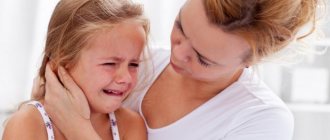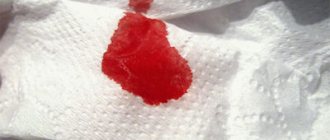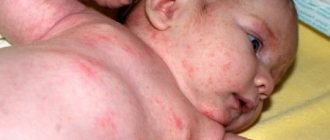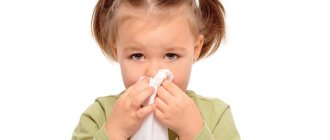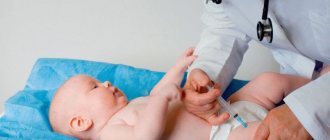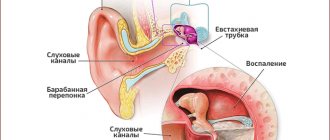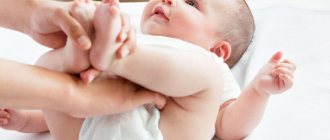Antibiotics and gastrointestinal function
Antibiotics, which are quite strong drugs, can irritate the walls of the stomach and intestines. Patients often experience nausea, vomiting, or abdominal discomfort while taking these medications. Such manifestations are easy to stop by changing the form of administration - switching from tablets to injections or taking the medicine after meals. Usually, these symptoms go away after the end of therapy.
The situation is more complicated when a child develops diarrhea while taking antibiotics or after completing a course of treatment. This problem is most likely associated with a violation of the intestinal microflora and the occurrence of dysbiosis in infants. Improper functioning of the gastrointestinal tract is a consequence of the death of beneficial bacteria inhabiting the intestines.
The nature of diarrhea when taking antibiotics
Diarrhea due to antibiotics in a small child can be observed immediately, even during the course of therapy, or may appear a few days later. The intensity of diarrhea depends on the degree of disruption of the intestinal tract:
- Light form . Diarrhea is observed up to 5 times a day, accompanied by some abdominal pain, which goes away immediately after defecation. This option is considered symptomatic and goes away on its own. The child's condition does not cause concern.
- Medium form . The intensity of diarrhea increases - up to 15 times a day. In this case, there is a temperature, mucus and bloody clots may be observed in the stool, which indicates inflammation of the intestines. In such a situation, absorbents will be needed. At the very least, you need to replenish the loss of water and salts.
- Severe form . A child may develop a more severe form of diarrhea while taking antibiotics. In this case, the number of bowel movements per day can reach 30, and there are clear signs of dehydration and intoxication. The child has a fever. In such cases, urgent hospitalization is required.
Causes of diarrhea
Diarrhea (or diarrhea) is characterized by factors known to all: frequent and loose stools. The diagnosis of antibiotic-associated diarrhea may be due to several factors affecting stool:
- the direct effect of the drug on the walls of the stomach and intestines, which is irritating;
- the occurrence of pseudomembranous colitis;
- the development of dysbiosis caused by the death of beneficial intestinal microflora.
As a result of the death of beneficial microflora, dysbiosis may occur in an infant.
Next, we will analyze each of the possible variants of diarrhea provoked by antibiotics. They all have different symptoms, the only thing they have in common is loose stools.
Irritating effect of antibiotics on the gastrointestinal tract
This factor is due to the special effect of some antibiotics on the smooth muscles of the stomach and intestines. These drugs include Erythromycin, which causes the intestinal muscles to work more actively, creating a laxative effect. Pediatricians believe that such a reaction of the body is normal and requires only symptomatic treatment. This type of disease differs from other types:
- intestinal upset occurs as soon as the child starts taking medication;
- the problem is mild, since the baby can only have stool up to 4 times a day;
- the abdomen is swollen, but there is no fever, pain, general health is satisfactory;
- The baby’s stool is of normal color, does not have green spots, white lumps, mucus, or blood (for more details, see the article: what to do if white lumps appear in the baby’s stool during breastfeeding?);
- diarrhea goes away on its own after you stop taking antibiotics.
Pseudomembranous colitis
This disease is quite rare, but requires maximum attention. It is characterized by prolonged diarrhea with green spots and mucus, abdominal pain, changes in laboratory parameters demonstrating increased leukocytosis. Stool analysis reveals a specific C. difficile toxin. This microorganism may be present in the intestines of healthy people, but there is very little of it there.
A fecal test may reveal C. difficile toxin in an infant.
During therapy with antibiotics that inhibit the normal intestinal microflora, in some cases C. difficile may begin to multiply uncontrollably. During the process of reproduction, microorganisms release specific toxins that cause intestinal upset and more serious complications. Children under 6 years of age, as well as older people, are at risk.
Dysbacteriosis
This type of diarrhea most often occurs after a course of therapy. Diarrhea does not bother the child too much, there is no pain, there is no blood or pus in the stool, the temperature is normal. Babies under one year of age often experience green or black stools after taking antibiotics (we recommend reading: green, loose stool in a child). For the mother of a breastfed baby, pediatricians recommend waiting a few days without doing anything. There is a possibility that the intestinal microflora will recover on its own.
Antibiotic-associated diarrhea: causes and features
Taking antibacterial tablets may be accompanied by unpleasant phenomena, such as nausea, loose stools, and abdominal pain. Antibiotics are aggressive towards the digestive system, but refusing treatment is not advisable: a bacterial infection is more dangerous for a child than diarrhea.
Stool disturbances can be observed from the first day of treatment. There are 4 common causes of this condition:
- Dysbacteriosis. As mentioned above, a broad-spectrum antibiotic affects all bacteria in the intestines: pathogenic and beneficial. A reduction in the amount of the latter leads to disruption of the colon. The stool becomes looser and more frequent.
- Pseudomembranous colitis. This disease is rare and is the most severe complication of antibiotic therapy. It can lead to intestinal perforation. The stool is loose and frequent, with greens and undigested pieces of food. This complication can occur in young children under 5 years of age.
- Stomach disorders. When taking antibiotics in tablet form, the mucous membrane of this organ inevitably suffers. Smooth muscles and intestines begin to contract more actively, which leads to loose stools. In this case, diarrhea appears from the first day of taking the drug, but is not accompanied by an increase in temperature.
- Individual intolerance to the prescribed medication. Diarrhea is caused by intolerance or an allergic reaction to one of the components of the drug. In addition to loose stools, fever and a rash appear on the body.
Drug-induced diarrhea is not considered safe. It can cause serious harm to the baby, so treatment is necessary.
Diarrhea occurs in different ways. If your baby has large, watery stools more than 5 times a day, you should consult a doctor. Also alarming symptoms that require medical attention are high fever and blood in the stool.
Serious side effects are more often caused by penicillin antibiotics. They provoke diarrhea in 15-20% of cases. Macrolides are less toxic and cause diarrhea in only 5%.
Treatment
Loose stools that occur as a result of taking antibiotics most often go away without treatment. However, young children are at high risk of dehydration, so it is still advisable to take measures to ensure that complications do not arise. For pseudomembranous colitis, therapy should be prescribed by a doctor.
Treatment can be divided into three stages: normalization of the body’s water-salt balance, thickening of stool, and restoration of intestinal microflora. To replenish fluid in the body, you need to drink more - water, tea, compote. However, rehydration solutions that can be purchased at a pharmacy are most effective. The most popular and budget-friendly are Regidron, Oralit, Humana Electrolyte.
To restore the water-salt balance of the child, you need to drink plenty of water.
It is worth noting that rehydration solutions must be prepared following the instructions. If the concentration of the drug is low, the effect will be weak; if the concentration is too high, the child may start vomiting and worsen diarrhea. Similar drugs are also indicated for infants. For a very small baby, you can increase the number of feedings so that the baby receives a sufficient amount of liquid along with milk.
Drugs for symptomatic treatment
If a child has stool more than 4 times a day, the baby should be given antidiarrheal drugs. Modern medications do not harm the patient, but only help to slightly thicken the intestinal contents. Popular and effective drugs are:
- Smecta in powder form (there is powder for babies);
- Enterosgel;
- Atoxyl.
There are other drugs that can stop diarrhea (more details in the article: what to do if a newborn has diarrhea while breastfeeding?). It is advisable to strictly adhere to the dosage of antidiarrheal drugs - it is calculated according to the age and weight of the patient. We also note that uncontrolled use of drugs of this kind can cause constipation, so they should be discontinued immediately after improvement.
Preparations for normalizing intestinal microflora
For those children diagnosed with dysbiosis, the pediatrician can prescribe medications with beneficial microflora. Today, you can buy a number of similar medications in pharmacies. However, many of them can provoke increased diarrhea, so in no case should you buy medications for your baby on your own decision.
Diagnosis and treatment
A history, stool and blood analysis will help determine the cause. As a rule, a long examination is not required. Your doctor can determine the underlying cause of your diarrhea by knowing what medication you are taking and what your symptoms are.
Treatment is symptomatic. It helps to alleviate the child’s condition if it is impossible to stop the antibiotic. Often complications while taking antibacterial drugs arise due to the duration of the course, for example, with pneumonia or tuberculosis. In this case, treatment of intestinal dysfunction is complicated by the serious condition of the baby.
The pediatrician will tell you in detail what to do if your child has diarrhea from antibiotics. Safe treatment for diarrhea in children includes:
- Rehydration solutions. If loose stools occur, you need to drink more water, but special solutions are more effective (Regidron). They allow you to replenish not only liquid, but also salts. You need to carefully read the instructions and follow the dosage in accordance with the weight and age of the child. If the concentration is weak, there will be no benefit, and if the concentration is strong, vomiting will occur.
- Enterosorbents. These are drugs that absorb and remove toxic substances from the body without being absorbed into the intestinal walls. These include Enterosgel, Smecta, and activated carbon. It is worth considering that they have age restrictions. When taking antibiotics, they are prescribed with caution, since these drugs remove not only toxins, but also the medicine, preventing it from being absorbed.
- Probiotics. Before treating a child with probiotics, you need to make sure that the drug is selected correctly. Some of them can increase diarrhea. Doctors often prescribe Linex, Acepol, Bifiform, Bifidumbacterin, Enterol.
Moms are wondering whether diarrhea can be a normal condition that does not require treatment. Loose stools 2-3 times a day without severe pain and greenness, nausea and fever, pediatricians do not recommend treatment. Enough probiotics and proper nutrition. Diarrhea will go away on its own after completion of therapy and will not lead to serious consequences for the body.
Diet for diarrhea
A very important point in restoring the body during an intestinal disorder is diet. Moreover, in some cases, to make a child stronger, it is enough to review his diet. Naturally, recommendations for infants and children over one year old will be different. Let's consider the general provisions for organizing baby food for diarrhea, depending on age.
Diet for babies
Breastfed children should receive full breast milk. In mild to moderate cases of diarrhea, it is advisable to give them rehydration solutions between feedings. It is important not to pour large portions of liquid into the baby, so as not to cause vomiting and worsen the condition. Recommended dose – 1 tsp. every 5-10 minutes.
Diet
Hippocrates, the father and founder of medicine, believed: “Food should be medicine, and medicine should be food.” This means the following: the body itself needs to be supported - the main defense mechanism in pathological conditions. The diet depends mainly on the age of the child.
Diet for infants
If your baby has moderate or mild diarrhea, he should be fed full breast milk. Small portions and often. Between feedings, it is necessary to give rehydration solutions, but in such a way that the baby does not vomit after taking it. Approximately 1-2 teaspoons of liquid should enter the child’s body every 10 minutes.
If the baby is bottle-fed, the nutrient solution must be diluted with water at first 1:2, then gradually switch to 1:1. In this case, rehydration solutions are given 5-6 hours before feeding.
Diet for one-year-old children and older
If the child is one year old or older, the baby must be fed often in small portions. Your diet should include:
- Low-fat soups and cereals without oil (good for diarrhea, thickening stool);
- Crackers;
- Kissels and compotes;
- Purees, baby food from fruits and vegetables.
It is worth giving up:
- Chocolate and cocoa;
- Fruit;
- Smoked products;
- Fatty foods;
- Nuts, legumes.
Between feedings, the baby should also be offered rehydration aids, following the instructions.
Drugs that protect the baby’s intestinal microflora:
- Lactic acid bacteria (Lactobacterin);
- Bifidobacteria (Bifiform, Bifikol);
- Complex options that contain several elements (Linex, Enterol, Hilak forte).
These medications help with the side effects of antibiotics, but must also be prescribed by a doctor. Otherwise, they can lead to increased diarrhea and vomiting.
Prevention measures
To avoid diarrhea during or after taking antibiotics, you should immediately take preventive measures. We list a few obvious ways to eliminate future complications:
- You should not take antibiotics on an empty stomach. This rule applies to almost all drugs of this kind, unless otherwise indicated in the instructions.
- You can make your child dishes that have a viscous consistency - oatmeal or other porridge, mashed potatoes.
- When an antibiotic is administered via intramuscular injection, the gastrointestinal tract is not affected. A doctor may prescribe just such treatment to a patient prone to stomach disorders.
- Pediatricians recommend taking medications that populate the intestines with beneficial microflora along with antibiotics. At the same time, Dr. Komarovsky believes that such remedies have no evidence base and are essentially useless.
Finally, it is worth noting that any diarrhea becomes extremely dangerous when it lasts more than 3-4 days. If diarrhea does not stop within the specified period or gets worse, you should immediately call an ambulance or visit a pediatrician. It is important to correctly determine the cause of the disease and relieve its symptoms so as not to cause dehydration.
What to do and how long does diarrhea last after antibiotics in newborns?
Antibiotics are an effective way to treat many diseases. The baby’s immune system is unable to cope with external bacteria and viruses on its own due to its formation. One of the complications that can arise after taking antibiotics is a malfunction of the baby’s gastrointestinal tract and, as a result, diarrhea. The use of these drugs is not recommended for infants.
Causes of diarrhea
To prevent the occurrence of severe complications, these medications are prescribed by a doctor. The main reasons that can cause diarrhea after antibiotics in an infant are:
- disruption of intestinal microflora and, as a result, dysbacteriosis;
- the digestive tract is irritated by the action of the drug components;
- pseudomembranous colitis.
When a doctor prescribes antibiotics for a child, it is advisable to resort to narrowly targeted drugs. A medicine with a broad spectrum of action will destroy not only pathogenic bacteria, but also all other components of the intestinal flora.
Digesting food after taking antibiotics becomes difficult due to a significant reduction in beneficial bacteria. The number of yeast fungi may increase, which provokes increased gas formation. A baby under the age of six months still finds it difficult to cope with the high content of air in the intestines.
Diarrhea in an infant is calculated by the number of bowel movements per day, and not by the consistency of the stool. Foamy stool indicates problems with the newborn's gastrointestinal tract. It is especially dangerous when blood appears repeatedly in the stool. This may indicate a violation of the integrity of the mucous membranes of the gastrointestinal tract.
Preventing Diarrhea
“The best treatment is prevention.” It is important and easier to prevent the disease than to treat it later and get complications after antibiotics. This is an axiom for parents.
Which medicine to choose
An adult should not self-medicate. An antibiotic is a serious, even dangerous medicine, with many side effects. Only the doctor can choose the drug for the patient.
- The doctor will determine the genus and type of microorganism that caused the disease.
- He will select a medication based on the sensitivity of the microbe to it.
- Select the minimum therapeutic dose, taking into account the side effects of antibiotics.
Why is it important to buy the drug prescribed by the doctor:
- During the selection, the characteristics of the organism were taken into account.
- The correct dosage has been selected - if the dose is incorrectly selected, mutations may appear in microbes that make the walls, membranes, and genetic information resistant to this chemotherapeutic drug. The situation poses a danger to humanity, because the pathogen is now more difficult to destroy, and other means with a strong bactericidal effect will be required.
- He will select a diet when taking an antibiotic and other medications that minimize side effects.
So, as a result of self-medication, the child’s health condition can worsen, causing harm to others by infecting them with a stable pathogen.
Symptoms
Parents of the baby can independently determine diarrhea in the baby. After taking antibiotics, the baby's tummy appears bloated. In this case, the body temperature is within normal limits, the newborn does not cry, and there may be no abdominal pain. With severe intoxication of a tiny organism, the temperature rises. The child becomes restless. People around you can hear rumbling in your tummy, and the passing of gas becomes loud. Intestinal contents may leak with them. The baby may refuse to eat. A dangerous symptom is a combination of diarrhea and vomiting. Mothers should be able to distinguish between excessive spitting up and vomiting in young children.
When dehydration begins, the skin becomes dry, the fontanel looks sunken, and there is less saliva. If you notice the described signs, you must immediately contact an institution for first aid.
Based on the child's condition, mom and dad can understand that something is bothering him. A healthy baby will be active, willing to make contact with loved ones, and cheerful. All discharge, urine and feces, will be natural and correspond to the regime familiar to the baby. Feces without sudden changes in color, without inclusions of blood or mucus.
Symptoms of complications
Most often, discomfort and symptoms occur 2-3 days after the first dose of the antibiotic. They depend on the cause of diarrhea, so it is important to carefully monitor the baby’s well-being and pay attention to the consistency and shade of waste products. It is better to immediately consult a pediatrician for advice if parents notice:
- diarrhea in infants after antibiotics;
- nausea;
- bloating;
- pale skin on the body;
- low-grade fever.
If motor skills are impaired, the child twists his legs and pulls them towards his stomach to reduce pain. The release of gases becomes more frequent, spasms and seething appear. He becomes drowsy, refuses food and favorite entertainment. Loose stools take on an unusual canary or greenish tint and become more frequent up to 5–7 times a day.
With normal microflora, infants up to one year old may also experience stool with a watery consistency. In preschool children, visiting the toilet up to 2-3 times a day is considered natural. This may be due to excess sugar, fat or rich foods in the diet. Diarrhea from antibiotics in a child requires treatment if undigested food remains are found in the stool, there is a sour or putrid odor, foam, or mucus.
Treatment
Treatment of diarrhea in newborns should begin after the first warning signs. If the child's stool character changes during use, the drug must be discontinued. There is a high probability of dehydration of a fragile body. If a baby has frequent bowel movements, it is necessary to give fluids, even if the baby is completely breastfed. Parents often neglect this rule. Ignoring the loss of water in the body can lead to serious consequences.
It is not recommended to treat diarrhea in an infant yourself. The right decision would be to contact a pediatrician. Only a doctor can select effective therapy and remedies that correspond to the age of the baby.
The treatment regimen involves three stages of treatment:
- normalize the water-salt balance in the body;
- make stool thicker;
- restore non-pathogenic bacteria that will populate healthy intestinal microflora.
Medicines that are approved from birth will help restore water balance and can be purchased at a pharmacy without a prescription form. After taking antibiotics of various spectrums, it is recommended to take a course of probiotics or prebiotics. They will help restore the healthy flora of the damaged organ. If symptoms increase, vomiting or fever occurs, you should call an ambulance and go to the hospital under the supervision of a doctor. First aid provided independently can temporarily alleviate the baby’s condition. You should not resort to traditional medicine methods.
Treatment of diarrhea after antibiotic therapy
Treatment of diarrhea in a child after antibiotics is carried out after consultation with a pediatrician. For this purpose, a whole range of measures is being developed, including taking special medications to normalize microflora, correcting daily nutrition with the addition of folk recipes and decoctions. With diarrhea, the baby loses a lot of water, so the following medications are used to prevent dangerous rehydration:
These preparations contain essential mineral compounds that support the functioning of the baby’s brain and heart and saturate tissue cells with useful substances. The powder is diluted with boiled water and given to the small patient in small portions every 15–30 minutes. Rehydration agents must be used throughout the entire course of treatment, gradually reducing the dose.
Diarrhea and vomiting in a child after antibiotics are a serious problem that requires mandatory treatment. It is necessary to use medications that stop diarrhea and soothe the irritated mucous membrane of the intestinal tract:
- Enterosgel – removes toxins formed after the activity of pathogenic microflora.
- Smecta - suspension has a pronounced antidiarrheal effect, reduces painful spasms and vomiting.
- Enterofuril - destroys harmful bacteria, relieving irritation of the mucous membrane and green diarrhea during intestinal infection.
In case of dysbacteriosis, it is important to choose the right way to treat diarrhea in a child after antibiotics. It is necessary to restore the intestinal microflora and populate it with beneficial microorganisms. For this purpose, probiotics are used - new generation drugs containing natural lactose and bifidobacteria, valuable amino acids. After reaching the epithelium, they begin to actively reproduce and build new colonies, normalize the condition of the rectum, and stimulate the production of immune defense.
If a child has a stomach ache after taking antibiotics, or suffers from diarrhea that turns into constipation, use one of the following remedies:
The famous pediatrician Komarovsky explains that any probiotic must be used from the first day of taking the antibiotic. This reduces complications, helps relieve diarrhea, and strengthens the baby’s immunity. The average course of treatment after antibiotic therapy takes 10-14 days. In severe cases of dysbacteriosis, the doctor may recommend long-term doses of 21 days with weekly breaks.
Restoration of microflora
If the child received complementary foods before illness, then it is necessary to temporarily discontinue all foods that contain acids and irritate the intestines. The nutrition of a nursing mother should be reviewed taking into account the child’s condition. If the baby is not allergic to cow protein, the woman is recommended to introduce fermented milk products into her diet. When breastfeeding, some of the beneficial bacteria will enter the baby's body.
There is no need to limit your child's diet. It should be familiar, but in reduced proportions. The feeding time interval becomes shorter. This will allow the gastrointestinal tract to normalize its activity without causing gagging.
If the child is bottle-fed, then the solution to restore water balance is taken two hours before the main meal.
The most difficult stage is restoring the baby’s intestinal microflora. The course can last up to six months. It is not recommended to make decisions on your own about what means will contribute to this. The doctor will base this on the results of the tests performed.
You can add low-fat broth and compotes that you prepare yourself to your child’s diet. Eating jelly is especially beneficial. Puree from bananas and apples promotes intestinal motility. If the child has teeth, you can offer to chew bread crackers cooked in the oven without spices.
If the child is recovering, then fermented milk products can be gradually introduced into the diet. The bacteria they contain will have a beneficial effect on the restoration of healthy microflora. You can use both store-bought products and those you make yourself using dry starter.
The information on our website is provided by qualified doctors and is for informational purposes only. Don't self-medicate! Be sure to consult a specialist!
Author: Rumyantsev V. G. Experience 34 years.
Gastroenterologist, professor, doctor of medical sciences. Prescribes diagnostics and carries out treatment. Expert of the group for the study of inflammatory diseases. Author of more than 300 scientific papers.
source
Is diarrhea after taking antibiotics in a baby normal or severe pathology?
The child's body is very susceptible to various viruses and infections. Therapy may include drugs of various effects, but when penetration of pathogenic microbes is observed, antibacterial agents are used. Diarrhea after antibiotics in infants is explained by disruption of digestive processes due to the death of beneficial intestinal microflora. To avoid this, parents should follow the rules of administration, dosage and not exceed the duration of therapy. In addition, probiotics, prebiotics and dietary nutrition may be prescribed.
When is antibiotic use in infants justified?
Such drugs are prescribed to children only when other treatment is unable to eliminate the problem. In case of a viral infection, they are useless and can harm the baby. Indications for prescribing antibiotics are:
- Symptoms of the disease persist for more than 4 days without improvement or worsening.
- No visible effect from the use of antipyretics if the temperature does not drop within 3 days.
- Addition of other symptoms such as cough, difficulty breathing, changes in the consistency and color of mucus.
Usually these symptoms indicate the presence of a bacterial environment. It may not appear immediately, but may occur against the background of a weakened immune system due to viral pathology. Antibiotics are also necessary for severe inflammatory processes, for example, sore throat, pneumonia, otitis media, whooping cough, sinusitis, pyelonephritis, cystitis.
Groups of antibacterial drugs
To avoid diarrhea in infants from antibiotics, such drugs should be prescribed by a doctor. In this case, the main criterion is not only efficiency, but also safety. If the condition is moderate, then bacterial culture is performed to identify the pathogen. This helps to choose a product that will attack only certain microorganisms.
When the condition is severe and there is no time for analysis, a broad-spectrum antibiotic is prescribed that can fight a large number of varieties of bacteria. A significant disadvantage of this choice is the risk of dysbacteriosis. And in order to prevent the death of beneficial flora, additionally, during the main treatment, they drink prebiotics, probiotics or symbiotics. These drugs, depending on their purpose, can create favorable conditions for the development of beneficial microflora or immediately populate microorganisms in the intestines. Which of them are safest for babies or have fewer side effects?
Infants are prescribed antibiotics in the form of a suspension; they are easier to give and are painless, unlike injections. Most often prescribed:
- Aminopenicillins : Amoxicillin, Ampicillin. Medicines with a broad spectrum of effects can develop resistance when taken for a long time.
- Macrolides : Sumamed, Azithromycin, Erythromycin. Suitable for those who cannot tolerate aminopenicillins. This group of antibiotics is the least toxic and practically does not cause side effects.
- Fluoroquinolones : Moxifloxacin, Levofloxacin. Their use is justified only if other drugs cannot help the patient. They work well against most bacteria, but have a number of side effects, including drug-induced diarrhea.
Classification of antibiotics
Young children often get sick due to an underdeveloped immune system. Severe bacterial infections cannot be cured without antibiotics. The child's body often reacts unpredictably to the drug, causing loose stools. This is due to the action of antibiotics: they are designed to suppress the proliferation of pathogenic bacteria. At the same time, not all drugs act selectively; in addition to pathogenic microorganisms, beneficial microorganisms necessary for normal intestinal function also die.
Drugs have different effects on the intestinal microflora and the body as a whole, so you need to select medications taking into account age and disease. There are five main groups of antibacterial drugs:
- Penicillins. These substances were among the first to be discovered. These are broad-spectrum antibiotics (Amoxicillin, Penicillin, Amoxiclav). They are considered relatively safe for children, but can cause a severe allergic reaction.
- Cephalosporins. The structure of these substances is similar to penicillins. They have a wide spectrum of action and are available in various forms: tablets, suspensions, solutions for injections. Cephalosporins often cause bowel-related side effects. These include Ceftriaxone, Cefomandol.
- Tetracyclines. The most famous group of antibiotics (Tetracycline, Doxycycline). They are considered relatively safe, but with prolonged and uncontrolled use they lead to serious consequences.
- Macrolides. They have a more complex structure (Erythromycin, Azithromycin). They have a wide spectrum of action, while side effects are kept to a minimum. Macrolides are often prescribed to young children. They can be taken in long courses if necessary.
- Fluoroquinolones. This group includes Ciprofloxacin, Levofloxacin. The drugs are used to treat infections of the respiratory and urinary tract and intestines. However, drugs in this group are highly toxic, so they are rarely prescribed to children.
Any drug can cause diarrhea from antibiotics in a child, but some have more severe side effects. Only a pediatrician should select a treatment.
In what cases can I cause diarrhea?
Most of the broad spectrum species cause diarrhea. And also the occurrence of complications may be associated with non-compliance with the rules of administration. The main reasons for the onset of diarrhea after taking antibacterial agents are:
- The negative effect of medications on the walls of the digestive tract, when irritation and inflammation occurs.
- Manifestation of pseudomembranous colitis.
- Increase in pathogenic and decrease in beneficial intestinal flora.
Irritation of the mucous membranes of the digestive system occurs due to the effect of drugs on smooth muscles in the tissues of the gastrointestinal tract. This often occurs during treatment with Erythromycin. At the same time, the intestines begin to work actively and a laxative effect appears.
In case of intestinal irritation, diarrhea occurs immediately after taking an antibiotic, bowel movements occur no more than 4-5 times a day, feces do not contain abnormal inclusions or impurities, and have a familiar smell. The baby’s health is satisfactory, the temperature is normal, there is no pain, but the stomach is swollen. All symptoms go away on their own after completion of therapy and do not require other intervention. You can speed up recovery by following a drinking regime and diet.
Pseudomembranous colitis
It appears rarely, but is a dangerous complication of drug therapy. The pathology is characterized by the presence of inflammation in the large intestine caused by the anaerobic microbe Clostridium difficile. This condition requires urgent treatment and often requires urgent hospitalization. Diarrhea persists for a long time, and against this background the patient is worried about:
- Abdominal pain.
- Vomit.
- Weakness.
- Deterioration of appetite or its complete absence.
- The presence of greens and mucus in the stool.
- Increasing thermometer readings.
The effect of medications on the gastrointestinal tract
Antibiotics belong to chemotherapeutic agents, with two spectrums of action on microorganisms:
- Wide spectrum of action;
- Narrow spectrum of action.
Medicines with a narrow spectrum of action rarely cause severe digestive disorders.
Broad-spectrum medications more often lead to motor and absorption dysfunctions of the intestines - symptoms of intoxication of the baby are possible (low-grade fever, weakness, drowsiness, pale skin).
Symptoms of gastrointestinal dysfunction:
- Constipation.
- Bloating.
- Frequent belching.
- Colic.
- Foamy, possibly slimy, green stool. There is no inflammation, no strong rise in temperature.
Symptoms of gastrointestinal motor dysfunction
Chemotherapy drugs act on the smooth muscle cells of the stomach and intestines, increasing or decreasing contractile activity, or have no effect on it.
For example, erythromycin enhances motor function, so digested food passes through the digestive tract faster and is not properly absorbed by the body. The baby has strong loose stools.
Other medications can, on the contrary, worsen motor function - gas accumulation (bloating) and constipation will occur. Large, hard fecal matter can damage the intestinal lining during bowel movements.
Symptoms of impaired absorption function of the gastrointestinal tract:
- Loose stools.
- Dehydration of the body. It is manifested by dry mouth, urine with a strong odor and dark color, rapid breathing and an increase in the number of heart contractions.
- Feeling of weakness in the body - nutrients are supplied in small quantities.
After stopping taking the medication, the symptoms of the negative effects of the medication on the mucous membranes of the digestive tract also stop. However, this does not always happen.
Admission rules
All drugs have their own characteristics of administration. If you fully follow the recommendations, the risk of diarrhea is reduced. Parents should pay attention to important points:
- Dosage of the product. It should not be exceeded or reduced without consulting a doctor.
- Time of receipt. If the drug is given once a day, then you need to take it at the same time. When the remedy is divided into 2 doses, one is given in the morning, the other in the evening, every day at the same hours. If time is missed, then the next dose is given as soon as possible and the interval is counted from the last dose.
- Maintaining water balance. The baby needs to be given water often and monitored for adequate nutrition.
- Duration of therapy. Antibiotics are usually prescribed for 5 days. But in some cases, this period may be shortened or increased, it all depends on the type of drug and the severity of the pathology. You cannot stop taking the medicine ahead of schedule, even if the symptoms of the disease have disappeared. In this case, the pathogenic flora will not completely disappear and will become resistant to this drug group.
The mechanism of development of diarrhea due to drugs
When treated with antibacterial agents, diarrhea begins in 80% of cases. These drugs destroy the intestinal microflora without selecting beneficial and harmful microorganisms.
Diarrhea occurs more often with long-term use. Therefore, if long-term use is necessary, it is worth taking restorative drugs at the same time. Dysbacteriosis can be recognized by the occurrence of nausea, vomiting, pain and heaviness in the stomach area.
When a baby has problems with the gastrointestinal tract and the risk of complications is increased, then you should switch to the injection form of taking the drug.
Antibiotic as a cause of dysbiosis
The drug often has a side effect on the intestinal microflora. And if the baby’s intestines are affected, the pathology sometimes lasts for weeks.
The intestinal microflora consists of obligate and facultative microorganisms.
- Obligate: lactobacilli, bifidobacteria, enterococci - microorganisms necessary for normal life, digestion, and protection.
- Facultative: Fungi of the genus Candida, clostridia, Klebsiella, protozoa, staphylococci - opportunistic microbes include those that exhibit pathogenetic properties under conditions favorable for reproduction, for example, with decreased immunity or dysbiosis.
- They participate in the breakdown of incoming products, releasing enzyme substances into the intestinal lumen that have the ability to enhance catalytic processes.
- Synthesize B vitamins.
- Antagonists for pathogenic and opportunistic microbes - prevent their growth, development and reproduction.
- They create a special membrane on the mucous membrane of the digestive tract and at the same time protect against the penetration of foreign agents into the body.
- They directly affect the motility of the gastrointestinal tract and indirectly affect other physiological processes of the body.
Thus, some chemotherapy drugs may disrupt the critical balance of microbes in the gut.
Diagnostics
If a baby has diarrhea from antibiotics, in order to understand what to do and how to help the baby, special tests are prescribed to confirm the presence of dysbacteriosis. These include:
- Coprogram. Shows the activation of enzyme components in the digestive mechanism.
- Sowing on flora. Provides information about the presence, type and quantity of bacteria that kill microflora.
- Culture for dysbacteriosis. Allows you to choose the right therapy, as it determines the susceptibility of microorganisms to medications.
All examinations should be carried out only after the end of the treatment course of antibiotics. But also during this period of time you should not take sorbents, prebiotics, probiotics, symbiotics, laxatives, give suppositories, or enemas. 2-3 days before collecting the material, there is no need to introduce unusual foods into the baby’s menu.
Treatment
Usually, diarrhea goes away on its own after stopping the drug, but sometimes this does not happen, and parents do not know how to treat diarrhea in infants after antibiotics. Then you need to adhere to the following recommendations:
- It is necessary to restore the disturbed water-salt balance. During illness, fluid is rapidly removed from the body, especially with frequent bowel movements, so the child should be given plenty of water. If diarrhea occurs, give 1-2 tablespoons of liquid every 10–15 minutes. This helps prevent dehydration. You can drink compote, weak tea, still mineral water. From pharmaceutical preparations, Gastrolit, Oralit, Electrolyte help.
- Stabilize the consistency of stool. The sorbents Atoxil, Smecta, Enterosgel help with this. They remove harmful toxins, but their use is advisable if bowel movements occur more than 4 times a day. The stronger drug Loperamide can be used only after consulting a doctor. In order not to provoke constipation, while the consistency of bowel movements improves and the frequency decreases, the medications are gradually discontinued.
- Normalize intestinal microflora. Probiotics, prebiotics and symbiotics help with this. They may prescribe Linex, Laktomun, Bifidumbacterin. If there is no improvement within 14 days, bacteriophages are recommended. These are localized viruses that affect pathogenic microorganisms. If gas formation increases, Espumisan is prescribed.
One of the treatment methods is diet. A nursing mother needs to exclude legumes, cabbage, black bread, potatoes, raw vegetables and fruits, beets, kefir, grapes, and cucumbers from her diet. Artificial babies should be given fermented milk formulas.
During illness, a child may lose weight due to frequent bowel movements and problems with appetite. There is no need to force him to eat. If the baby receives complementary feeding, then the food should be light, steamed or boiled. Preference is given to dairy and plant foods.
Traditional methods of treatment after antibiotics
There are several effective and affordable recipes for what to do if a child has diarrhea after antibiotics. With the permission of a specialist, in addition to standard treatment, you can use:
- Chamomile decoction. For 0.5 liters of water you need to put 2 tsp. flowers, boil and strain. The child is given the product 3 times a day in 50 ml portions.
- Infusion of dried blueberries. Pour boiling water over an incomplete handful of dry berries and leave in a warm place for at least 2 hours. Give lightly sweetened 3-4 times a day.
- Composition of a mixture of sage, calendula, oak bark. Mix the herbs in equal parts, boil in 1 liter of purified water, give instead of warm tea in portions of 30–50 mg.
Such methods are not recommended for infants and children who are allergic to pollen. Diarrhea and vomiting in a child after antibiotics can be easily relieved by the following means:
- decoction of pomegranate peels;
- rice jelly;
- Black tea;
- liquid starch solution.
The use of folk remedies should be combined with antidiarrheal drugs. To prevent dehydration, you can give compote of cranberries, green apples or raspberries, fruit juice, rosehip decoction with the addition of echinacea.
